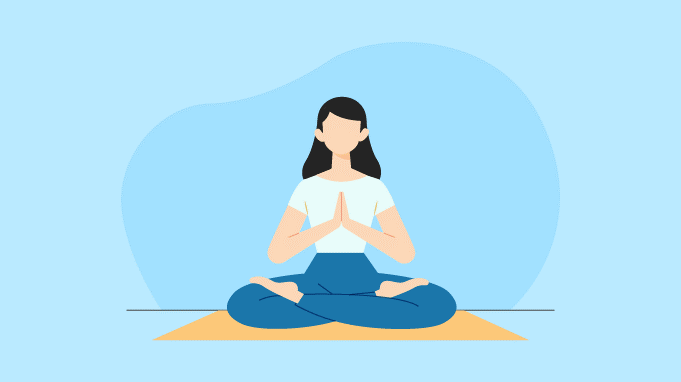
In the hustle and bustle of our modern lives, where stress and anxiety often seem like unwelcome companions, the ancient practice of mindfulness meditation emerges as a beacon of serenity. This article explores the transformative power of mindfulness meditation, delving into how it serves as a potent tool for managing the overwhelming waves of stress and anxiety that can impact our mental well-being.
Understanding Mindfulness Meditation
At its essence, mindfulness meditation is about cultivating a heightened awareness of the present moment. Rooted in ancient contemplative traditions, this practice encourages individuals to observe their thoughts and feelings without judgment, fostering a sense of clarity and inner peace. By focusing on the breath, bodily sensations, or a specific point of concentration, practitioners learn to anchor themselves in the present, detaching from the whirlwind of stressors that often fuel anxiety.
The Science of Serenity: How Mindfulness Alters the Brain
Scientific research has provided compelling evidence for the positive impact of mindfulness meditation on the brain. Regular practice has been associated with changes in the structure and function of the brain, particularly in areas related to emotional regulation and stress response. The cultivation of mindfulness appears to promote neural plasticity, empowering individuals to respond to stressors with greater resilience and calmness.
Breaking the Cycle: Mindfulness in Stress Management
1. Stress Reduction Through Breath Awareness:
Mindfulness meditation often begins with a focus on the breath. By paying attention to each inhalation and exhalation, individuals create a mental anchor that helps ground them in the present moment. This simple yet powerful technique can be employed anywhere, making it an accessible tool for managing stress in real-time.
2. Cultivating Non-judgmental Awareness:
A key tenet of mindfulness is observing thoughts without attaching judgment. This practice allows individuals to acknowledge stressors without becoming entangled in negative thought patterns. Through non-judgmental awareness, one can break the cycle of rumination and reduce the emotional intensity of stressors.
3. Body Scan Meditation for Relaxation:
Body scan meditations involve systematically directing attention to different parts of the body, promoting relaxation and awareness of physical sensations. This technique is particularly effective in releasing tension and grounding individuals in the present moment.
Integrating Mindfulness into Daily Life
Mindful Eating:
Incorporate mindfulness into meals by savoring each bite. Pay attention to textures, flavors, and the act of chewing. This practice fosters a deeper connection to the nourishment your body receives.
Mindful Walking:
Transform routine walks into opportunities for mindfulness. Feel the ground beneath your feet, notice the rhythm of your steps, and observe your surroundings with a sense of presence.
Mindful Breathing Breaks:
Take short breaks throughout the day to engage in mindful breathing. This can be especially beneficial during hectic moments, providing a brief but rejuvenating pause.
Conclusion
In a world that often seems to move at an accelerated pace, mindfulness meditation stands as a timeless remedy for the stress and anxiety that accompany our daily lives. By embracing the practice of mindfulness, we equip ourselves with a powerful tool to navigate the complexities of the mind, fostering resilience, and finding tranquility amidst the chaos. As we breathe in the present moment, may we discover the transformative potential of mindfulness meditation—a practice that transcends time and empowers us to cultivate a calm and centered existence.
References
https://www.apa.org/topics/mindfulness
https://positivepsychology.com/mindfulness-exercises-techniques-activities/